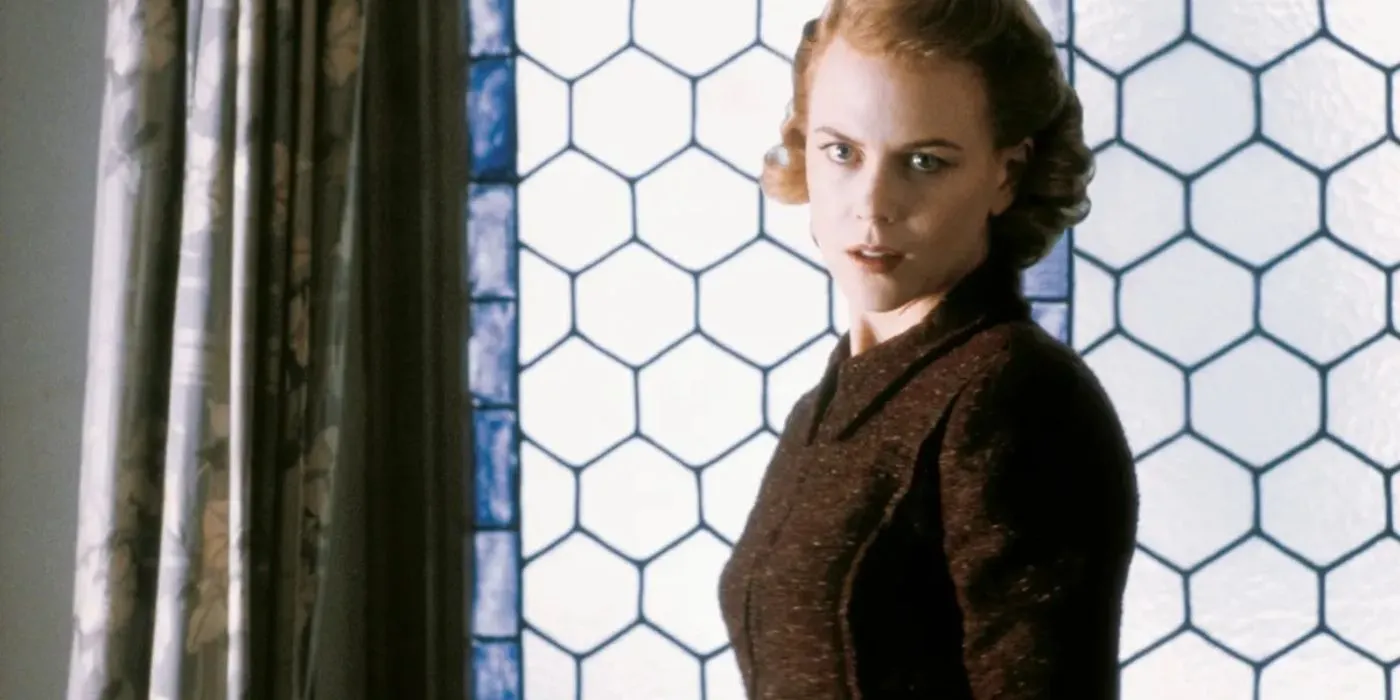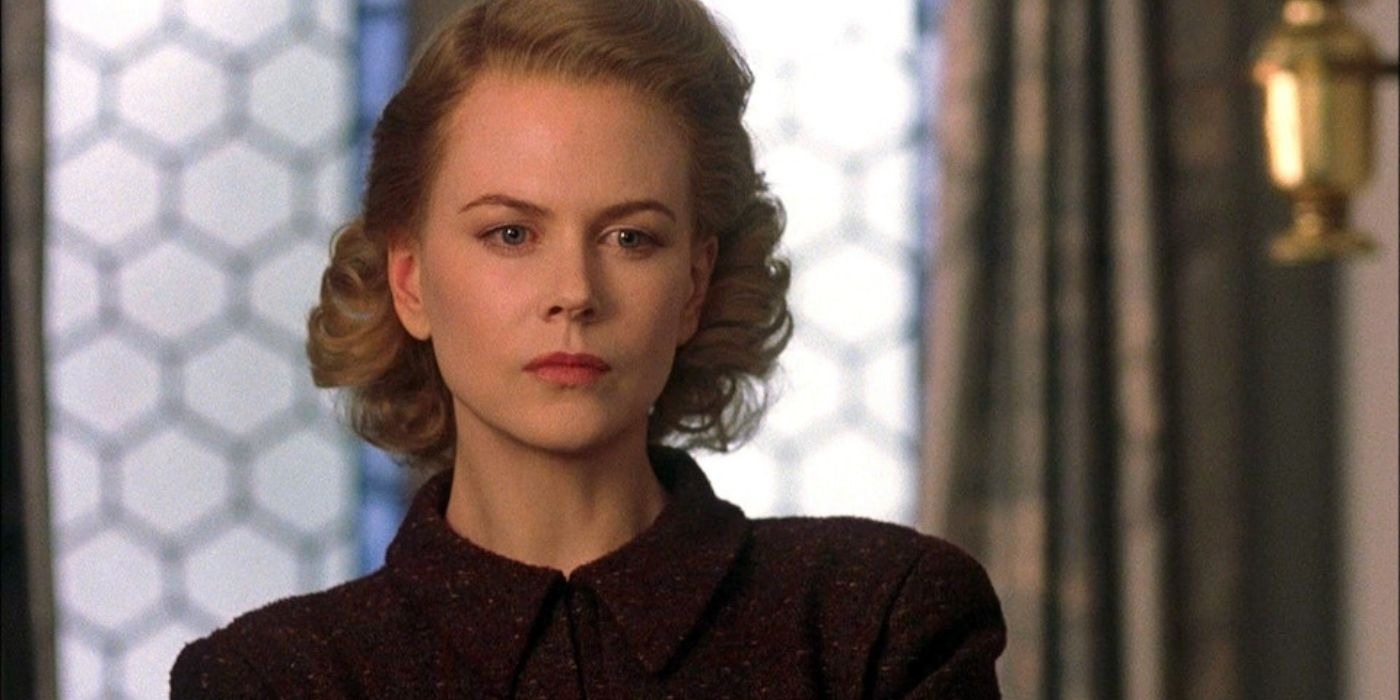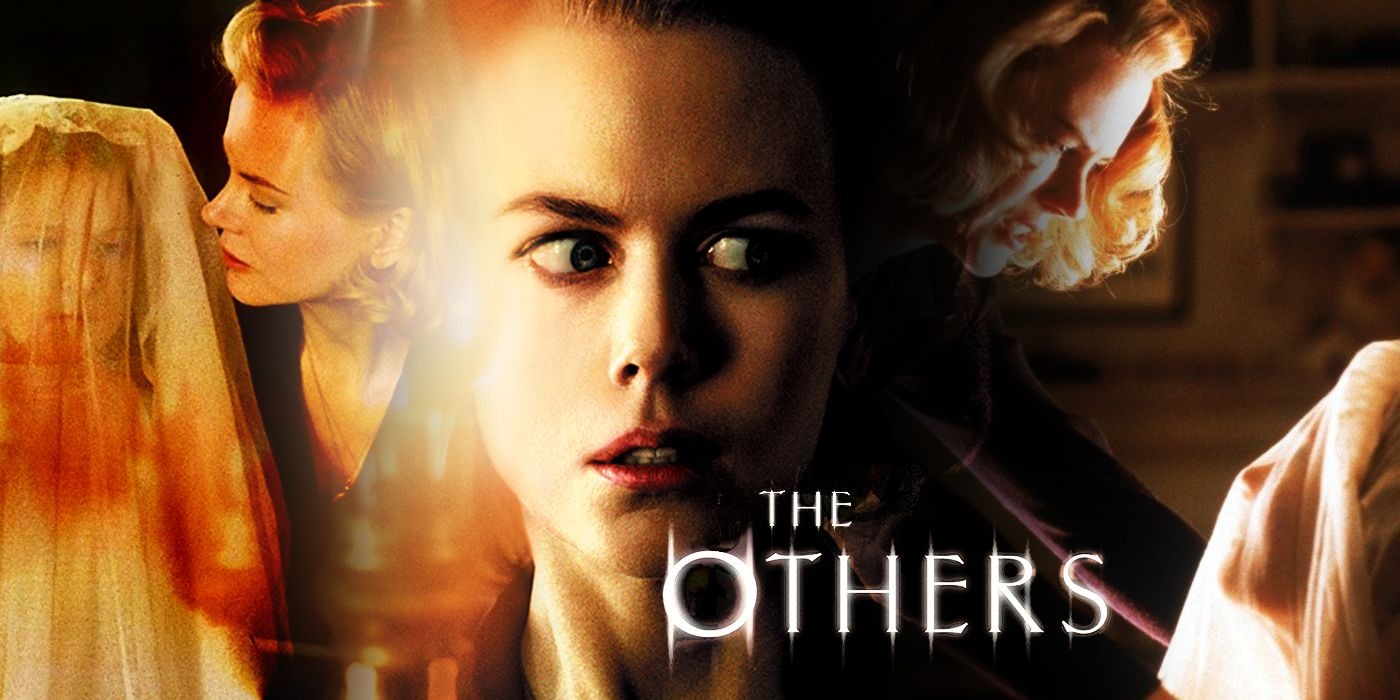Unlike many ghost stories that heavily rely on sudden scares, The Others convey a deeper meaning tied to sorrow, loss, and the lingering effects of war. Grace Stewart (played by Nicole Kidman) and her children, Nicholas (James Bentley) and Anne (Alakina Mann), reside in an old house in Jersey.
They are trying to adjust to life after the loss of their husband and father, who died in World War II. Instead of focusing solely on supernatural horror, the film uses Kidman’s compelling portrayal of a protective mother to drive its emotional weight.
A slow-burning atmosphere builds a deep sense of unease throughout the film, making The Others one of those horror films that offer a completely different experience upon a second watch.

The twist in the final act completely alters the perception of the story, proving that nothing was as it first appeared—not just for the audience but also for the characters. Unlike certain plot twists in movies that feel forced or unrealistic, the revelation at the end of The Others fits seamlessly into the story.
What The Others’ Ending Truly Represents
The conclusion of The Others delves into grief, the consequences of war, and Grace’s struggle to move forward after losing a loved one. Her inability to let go of the past highlights the sorrow that many families experience when they are forced to continue life without someone they cherish.
Rather than being another supernatural horror film focused on ghosts, The Others is deeply rooted in themes of emotional pain and loss. Grace never got the chance to say a proper farewell to her husband, yet she was expected by society to carry on as if nothing had changed.
Another major theme in the film revolves around mental health and the lack of support for those struggling with it. Grace never received the emotional or social help she needed while she was alive.
Raising two children alone while her husband was away at war was already a burden, and his tragic passing only made things worse. Set in 1945, the film realistically portrays the societal pressure on women to suppress their emotions.
The sorrowful conclusion of The Others serves as a reminder of the limited understanding of depression at the time and the absence of proper support systems.
Critical Response to The Others’ Ending
Alejandro Amenábar, who both directed and wrote The Others, delivered one of his most memorable works, with the final revelation playing a crucial role in making the movie unforgettable. The way the twist was executed ensured that the film remained a point of discussion whenever great movie endings were debated.
Despite this, critics seemed to focus more on other aspects of the film rather than its ending. Reviews of The Others were largely positive, with much of the praise directed at the movie’s chilling atmosphere and Amenábar’s masterful way of building suspense.

Nicole Kidman’s performance, in particular, was frequently highlighted as a major strength of the film. While the ending was acknowledged, it wasn’t the main reason critics appreciated The Others. It was certainly a well-executed revelation, but it appears that critics were more impressed by the film’s tone and direction.
Among general audiences, however, the twist remains a hot topic, often discussed in online forums and debates about memorable horror movie conclusions. Some viewers felt that the twist in The Others became a little too obvious before the final reveal.
Even though the execution was handled well, a second viewing makes it clear that Grace and her children are ghosts, especially when Charles Stewart, Grace’s husband, briefly returns.
Those who paid close attention during their first watch may have picked up on these clues early, which could explain why some critics did not view the ending as one of the movie’s strongest aspects.
While there were a few criticisms about its predictability, The Others remains a well-regarded horror film with a conclusion that still sparks conversation to this day.



